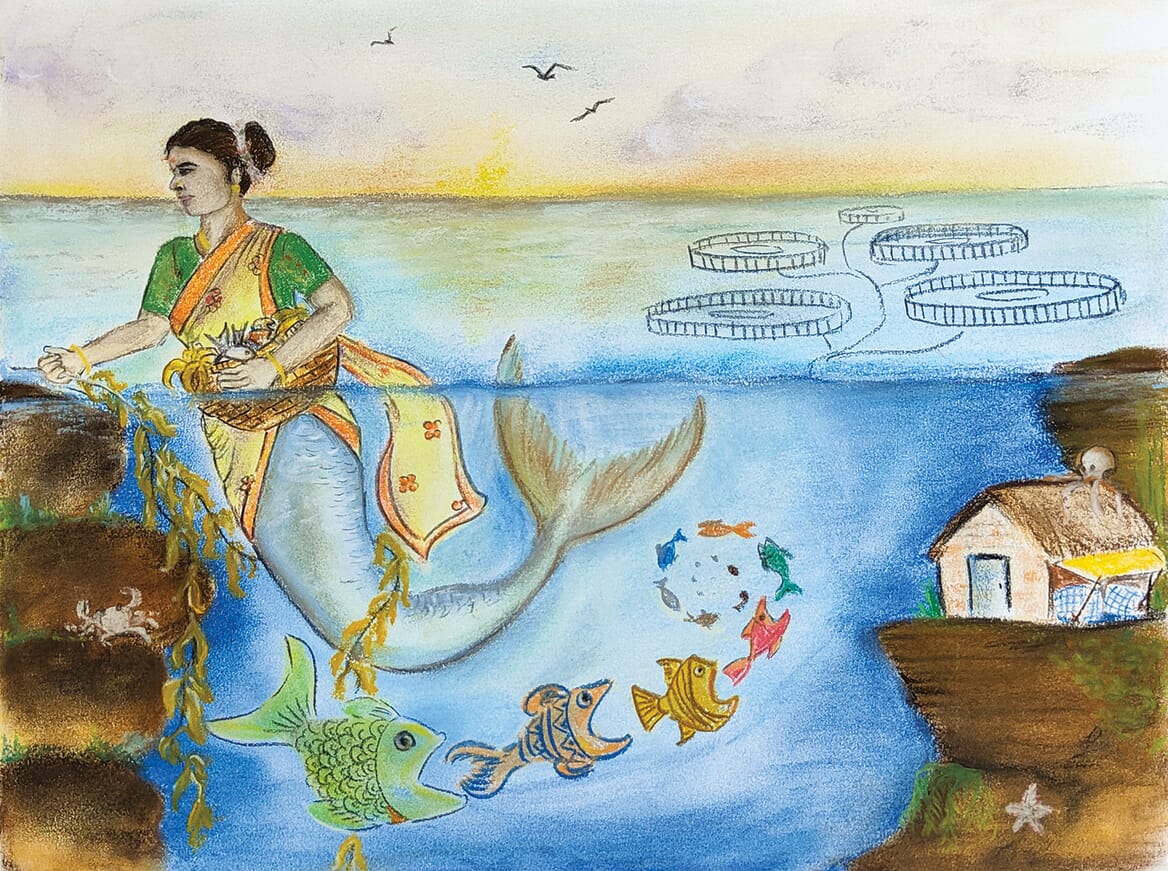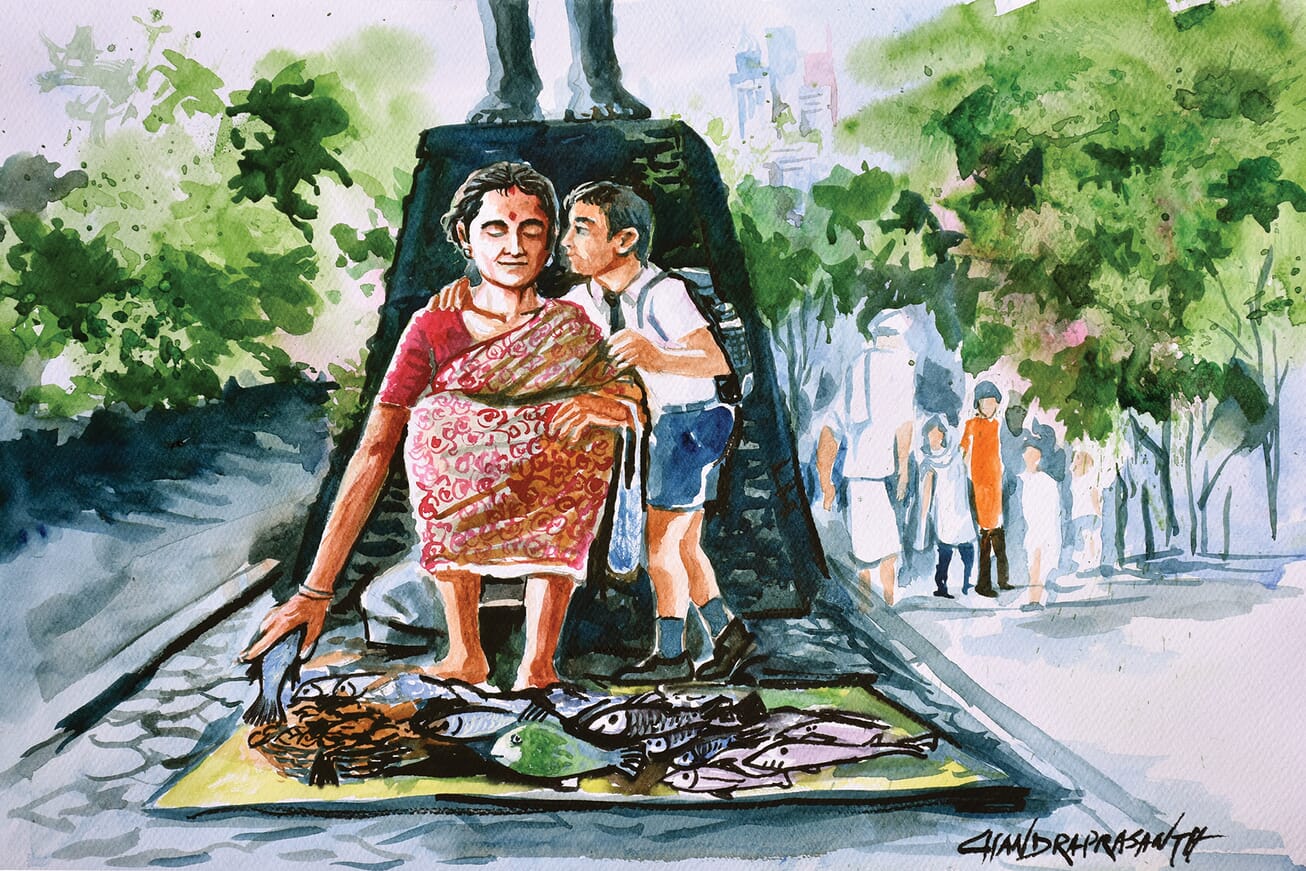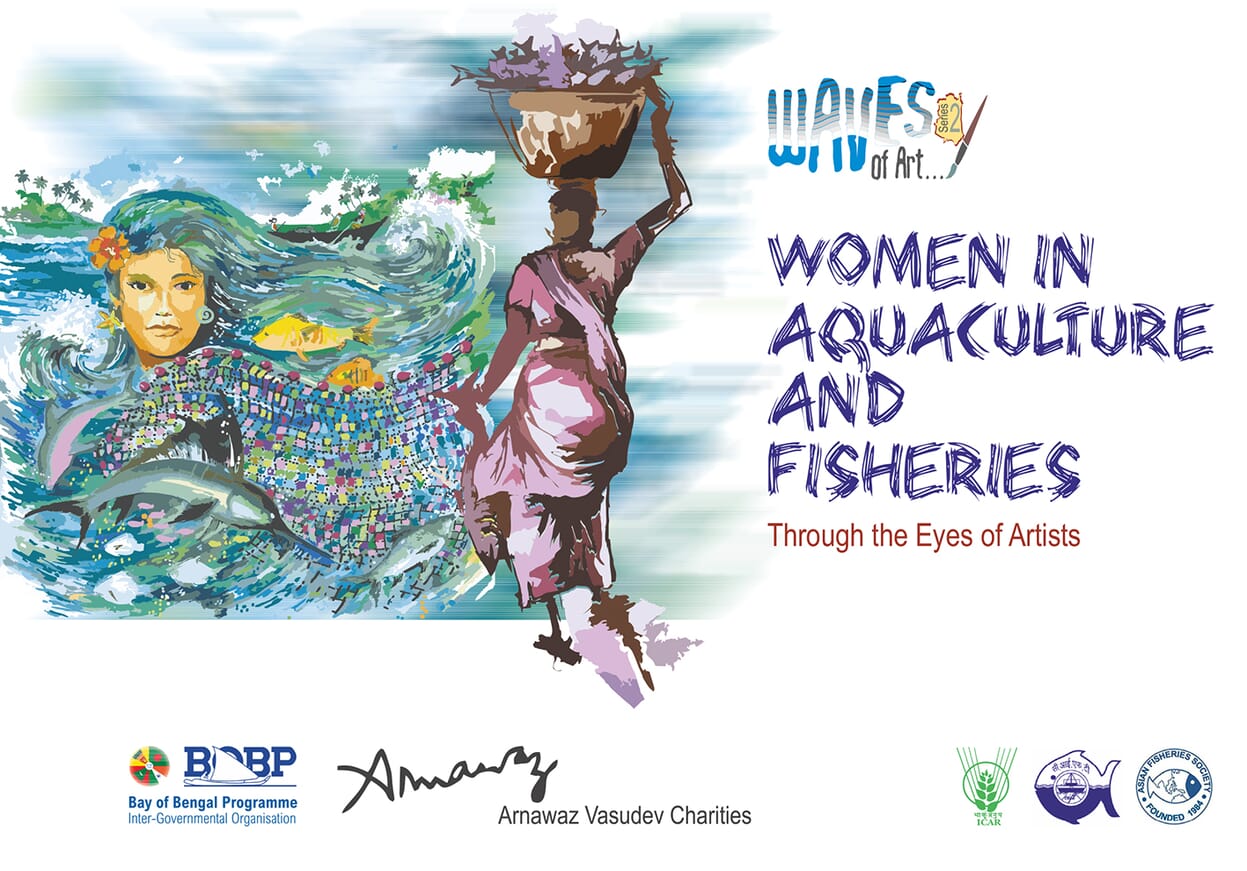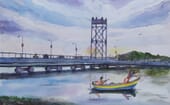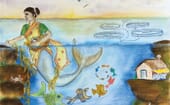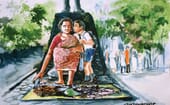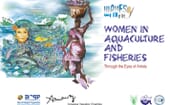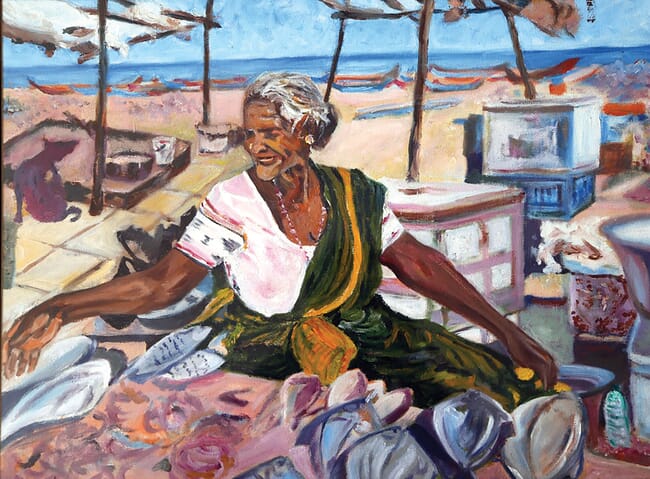
Struggles, negligence, strength, success and more. Everything that marks the position of women working in aquaculture has been delicately portrayed in a book of paintings by 52 artists from India, Sri Lanka, Bangladesh and Maldives. The publication, which carries 71 lively artworks explicitly sketching the status and conditions of female workers, brings forth both the miseries and power of the women in the sector of the countries bordering the Bay of Bengal.
The book is part of an artistic campaign, Waves of Art, launched by the Bay of Bengal Programme (BOBP), aimed at highlighting the roles played by women, including their issues and achievements, in aquaculture and fisheries in South Asia. The initiative assumes significance in view of the poor representation of women in fisheries activities and governance.
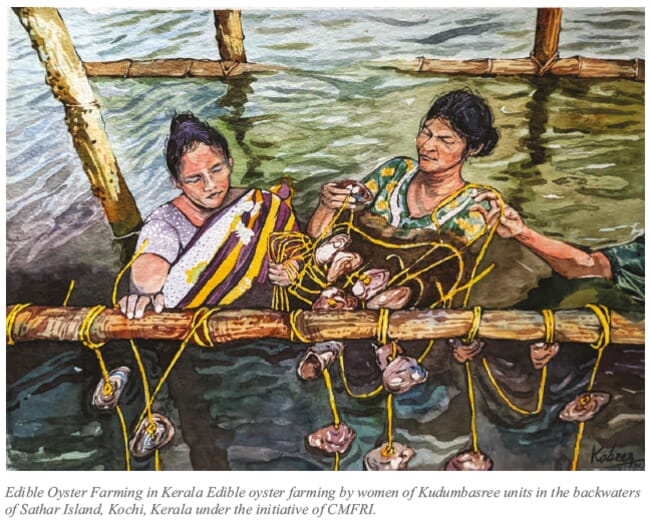
24 paintings by 18 artists from Kerala
Out of a total of 52 artists from these four countries, 18 from Kerala together contributed 24 paintings to the book, which has a total of 63 artworks representing India. The book contains works of professional artists, scientists and subject matter specialists in the sector. Portrayals of women from Kerala’s backwaters, post-harvesting units and fish markets have found a place in the publication. The artistic representation grabbed the attention of many stakeholders and the public while the artists assembled to draw their paintings during the 8th Global Conference on Women in Aquaculture and Fisheries (GAF8) held in Kochi recently.
The book has a collection of works representing women’s unending battle with odds to make a living, poor working conditions posing risks of health issues, determination and strength to fight for empowerment and power to conquer success—a blending reality in the sector.
The drawings throw light on women multitasking to tide over misfortune and engaging in community and resource conservation. The backbone of many coastal households, women are also represented as real warriors and powerful individuals in mainstream life. The book includes life sketches of women as inland fishers, fish farmers, fish vendors, fish farmers, workers in post-harvesting, etc.
“Artists from different countries voluntarily joined the campaign to attempt to portray the emotions, power, strength and achievements of women in the sector they chanced upon in their life,” said Dr P Krishnan, director of BOBP, which serves as the think tank on transboundary and contemporary national issues of the member countries concerning fisheries management. The book was brought in association with Arnawas Vasudev Charity as part of the Waves of Art campaign.

“Waves of Art campaign aims to highlight issues in the fisheries sector in need of larger public support. This time we have taken the theme –‘Women in Fisheries’”, he said. The campaign is not limited to a specific geographical location. Instead, it draws the attention of both artists and the public alike across India and neighbouring countries, he added.
No proper representation
“A whopping 50 percent of those employed in the seafood sector are women and most importantly they constitute 90 percent of seafood processing units. Unfortunately, they are not given a proper representation and their mighty presence and highly valued role played by them are hardly recognised in the mainstream. Even as the female workforce greatly helps carry forward the sector, their issues and problems are neither addressed nor resolved,” Dr Krishnan said, adding that the majority of the women workers get low wages and work in poor conditions, leaving them with many health issues.
Art is powerful
“As art is more powerful than the usual way of presentation, we decided to take the art route to create public awareness of this issue and to express solidarity to the women working in fisheries,” he said.
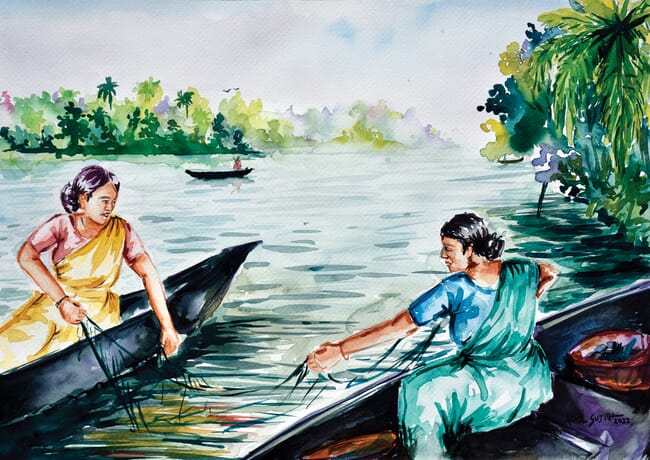
He is hopeful that the publication of the paintings is expected to have a greater impact on society as it helps to unearth the unpleasant reality prevailing in the sector and understand the power of women
“The BOBP is welcoming like-minded organisations and people for leveraging the potential of this campaign to a greater level. Utilising the rich resources of artists as the communication ambassadors of serious causes in fisheries and aquaculture will have dynamic impacts in the development of the sector,” he said. Massive outreach programmes will be held in future to exhibit the artworks across the country, both in urban and rural areas so that the message could reach a larger audience, Dr Krishnan added.
-
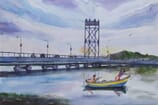
"fishing in Kochi backwaters" -
![]()
"As a mermaid" -
![]()
"Balancing act - livelihood and family" -
![]()
Waves of Art book cover

